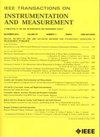带测量不确定度分析的动力传动系统差动效率试验方法
IF 5.9
2区 工程技术
Q1 ENGINEERING, ELECTRICAL & ELECTRONIC
IEEE Transactions on Instrumentation and Measurement
Pub Date : 2025-09-04
DOI:10.1109/TIM.2025.3606023
引用次数: 0
摘要
动力驱动系统(pds)的绝对效率测量需要低不确定度的仪器,这使得它们成本高昂,而且无法正确表征微小的增量性能增益。差分测量通过关注工作点之间的变化和衰减系统不确定性,提供了一种实用的替代方法。本文提出了一种结构化的pds差分效率测量方法,并推导了该方法中测量不确定度的量化公式。结果以一般方式呈现,因此突出了最佳实践,以提高不同PDS配置,电机类型和工业应用中差分测量的适用性。在一个考虑变频器中多个开关频率的实验案例研究中,对所提出的方法进行了评估,结果表明,即使使用精度不足的仪器进行绝对效率评估,该方法也能可靠地表征0.05%左右的效率变化。本文章由计算机程序翻译,如有差异,请以英文原文为准。
Differential Efficiency Testing Method for Power Drive Systems With Measurement Uncertainty Analysis
Absolute efficiency measurements in power drive systems (PDSs) require low-uncertainty instrumentation, making them costly and impractical for properly characterizing small incremental performance gains. Differential measurements offer a practical alternative by focusing on variations between operating points and attenuating systematic uncertainties. This article proposes a structured method for differential efficiency measurement in PDSs and derives equations for the quantification of the measurement uncertainty in the proposed method. The results are presented in a general way, so best practices are highlighted to improve the applicability of differential measurements in different PDS configurations, motor types, and industrial applications. The proposed method is evaluated in an experimental case study considering several switching frequencies in a frequency converter, and the results show that the method enables the reliable characterization of efficiency variations of the order of 0.05%, even when using instrumentation with insufficient accuracy for absolute efficiency assessments.
求助全文
通过发布文献求助,成功后即可免费获取论文全文。
去求助
来源期刊

IEEE Transactions on Instrumentation and Measurement
工程技术-工程:电子与电气
CiteScore
9.00
自引率
23.20%
发文量
1294
审稿时长
3.9 months
期刊介绍:
Papers are sought that address innovative solutions to the development and use of electrical and electronic instruments and equipment to measure, monitor and/or record physical phenomena for the purpose of advancing measurement science, methods, functionality and applications. The scope of these papers may encompass: (1) theory, methodology, and practice of measurement; (2) design, development and evaluation of instrumentation and measurement systems and components used in generating, acquiring, conditioning and processing signals; (3) analysis, representation, display, and preservation of the information obtained from a set of measurements; and (4) scientific and technical support to establishment and maintenance of technical standards in the field of Instrumentation and Measurement.
 求助内容:
求助内容: 应助结果提醒方式:
应助结果提醒方式:


